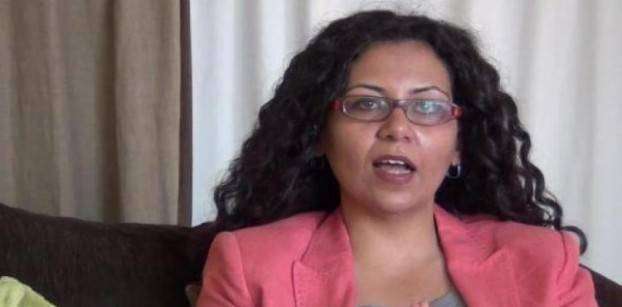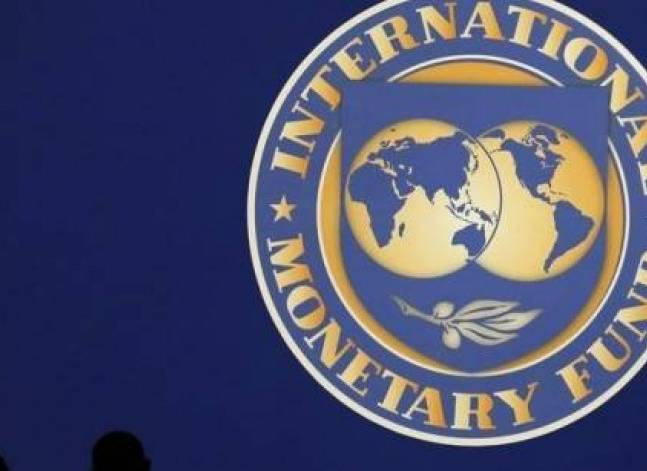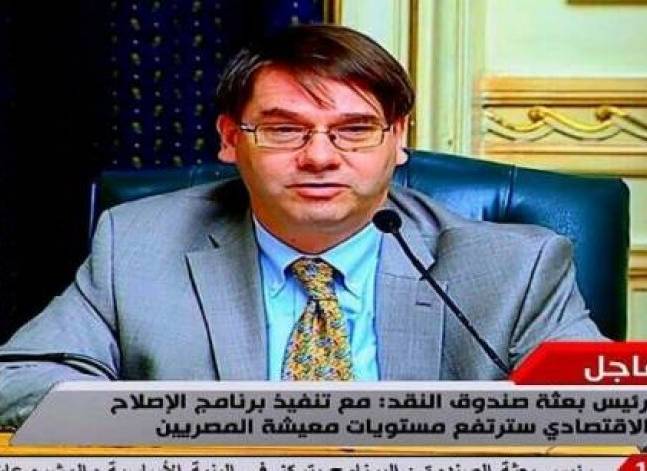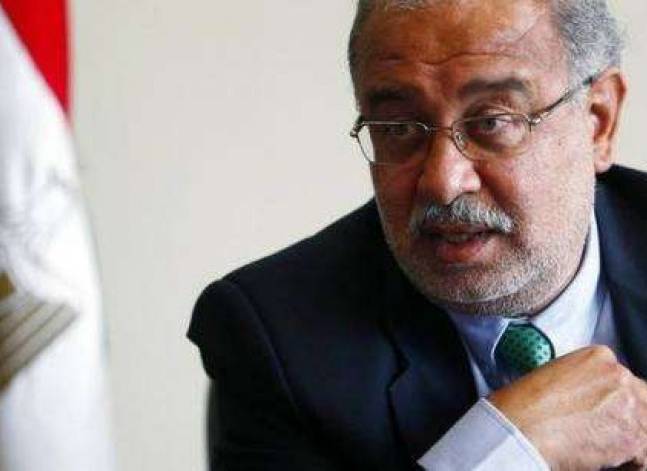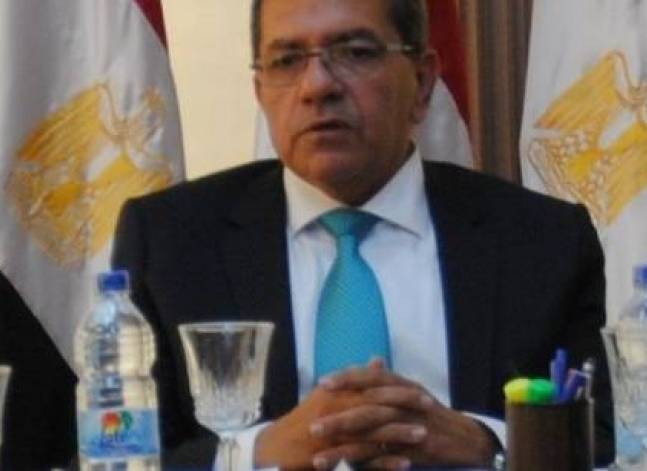Latest NEWS
- Aswat Masriya, the last word
- Roundup of Egypt's press headlines on March 15, 2017
- Roundup of Egypt's press headlines on March 14, 2017
- Former Egyptian President Hosni Mubarak to be released: lawyer
- Roundup of Egypt's press headlines on March 13, 2017
- Egypt's capital set to grow by half a million in 2017
- Egypt's wheat reserves to double with start of harvest -supply min
- Roundup of Egypt's press headlines on March 12, 2017
Political Science Prof. Rabab El Mahdi: economy under Sisi worsens conditions for majority
CAIRO, Aug 11 (Aswat Masriya) - Five years after the Supreme Council of the Armed Forces (SCAF) refused to borrow from the International Monetary Fund, the Egyptian government reached a deal on Thursday for a loan almost triple the amount that was being negotiated back then.
Egypt's economy has been struggling since a mass uprising in 2011 toppled President Hosni Mubarak after 30 years in power.
The political instability that followed drove away tourists and foreign investors, both major earners of foreign currency. Reserves have halved to about $17.5 billion at the end of June since then.
SCAF ruled Egypt in a transition phase that began following Mubarak's ouster in February 2011 and lasted until the election of former president Mohamed Mursi in 2012.
During Mubarak's last years in power, his son Gamal was seen by most spectators as the inevitable successor. Gamal's prominent role in the ruling party at the time featured economic initiatives and reforms that championed the liberal current.
Aswat Masriya interviewed the American University in Cairo's Political Science Professor Rabab El Mahdi, who specialises in political economy, about her vision regarding the current regime's shift in stance and how it reflects on state policies.
Authorities are not afraid of another 1977 'Bread Riots'
Egypt's government has finalised the conditions upon which the loan programme with the International Monetary Fund (IMF) will be implemented. The economic reforms package announced regarding the $12 billion loan suggest a more or less similar approach to that taken in the 2011 talks with the IMF.
Reforms include tax increases and subsidy cuts. This is in addition to the Egyptian government's existing reform programme that includes shrinking its spending on public sector employees under the umbrella of the newly introduced civil services law.
Some analysts argue that the military establishment, known for its conservative stance, would not embark on such reforms in fear of the social pressures associated with it. Such analysis comes on the backdrop of the social upheaval that occurred in January of 1977.
President Anwar al-Sadat cut public subsidies for flour, cooking oil and other staples at the time resulting in a sudden hike in the price of bread and other basic commodities which prompted scores of Egyptians to protest the decision.
The subsidy cuts were mandated by terms of an agreement with the IMF and the World Bank.
The two-day riots pushed Sadat to go back on his decision and re-institute the subsidies.
Professor Rabab El Mahdi believes that the presence of a president who descends from the military establishment does not necessarily mean that he would refuse such economic policies.
"There is a misconception that the military establishment as a whole is against the liberal economic approach, but there are varying views within this establishment," Mahdi said.
"There are people in the military who adopt a conservative vision similar to that held by senior officials like former Prime Minister Kamal al-Ganzouri, former defence minister Hussein Tantawi and above all the current President Sisi, especially since this generation had witnessed the 1977 riots but not from the position of authority, " Mahdi added. "
President Abdel Fattah al-Sisi took office in June 2014, a year after the military ouster of former president Mohamed Mursi following mass protests against his rule. Sisi was the defence minister under Mursi's rule.
Egypt's recent rapprochement with liberal economic policies came at a time when Gamal Mubarak was being groomed to succeed his father in office. Gamal who was a leading figure in the ruling party at the time introduced financial reforms that aimed to ease the burdens on investors, cut back on subsidies and privatise state-owned assets.
However, Mahdi views Sisi's economic model as different from that of Gamal despite the presence of several liberal ideas.
Gamal Mubarak had a different experience from that of Sisi; he worked in banks abroad and believed in the free economy indefinitely, according to Mahdi.
"The current regime, on the other hand, has failed to present an all-encompassing economic vision, and that is evident in the haphazard and partial moves adopted such as depleting foreign reserves to accelerate the digging of the Suez Canal," Mahdi said.
Criticism has been raised against the current regime's policies for failing to realise demands of social justice. Policies such as the maximum wage have been applied irregularly and selectively and the capital gains tax was introduced then halted after pressures from the business community.
Mahdi believes that such setbacks reveal the weakness of the current regime, although it has been viewed as a strong one for bringing back relative political stability to the country.
"In political science, we differentiate between the strong state and the fierce state. What we are witnessing now is a fierce state but not a strong one; it is a repressive regime but repression does not signify power," Mahdi explained, "It indicates that there is no other way to administer society without the use of repression, violence and threats."
The regime is embarking on economic reforms with utmost confidence, which Mahdi describes as due to President Sisi's perception of endless popular support.
"This perception could be true but it is not sustainable," Mahdi commented, "Presidents like Suharto of Indonesia were able to implement liberal policies but they relied on the legitimacy of their achievements, whereas Sisi's only achievement is eliminating the Muslim Brotherhood and that is not enough."
Absence of a strong coalition
Economic policies adopted since 2014 prove that the current regime in Egypt was confident in implementing some policies such as floating petrol prices, but hesitant before legislating the adoption of value-added tax to expand the sales tax base.
Mahdi believes that these contradictions are due to the absence of a strong coalition backing the ruling authority. "Even Gamal Mubarak had a supporting coalition represented by politicians, businessmen and others."
Despite there being many prominent businessmen who played significant roles under Sisi's leadership, Mahdi sees that this does not represent a strong coalition.
Mahdi pointed out that there is a difference between a momentary coalition and a partnership. The way conflicts among well-known businessmen have played out suggests that current forms of cooperation are more temporary and dependent on a given situation rather than long-term.
Employees and the state
Late Economist Samer Soliman saw government employees as the main supporters of Mubarak's regime, which is the reason Mubarak was keen on spending on their wages. However, Sisi's regime has had spending on government wages decline by 5 per cent this year.
The move to cut spending reveals, in Mahdi's opinion, the president's perception of the people as a "silent bloc" which he relies on at an individual and personal level only, unconcerned by analysing its class structure.
"The president depends on people's support to him and perception of him as an individual for he speaks to them as individuals and gives much care to a theatrical appearance which he masters," Mahdi said, "This vision reflects the view that Egyptian nationalism signifies endless sacrifices on the part of the people whose standard of living is affected by such policies."
Upsetting future
Mahdi affirms that current conditions are not sustainable and economic conditions in particular will fall as a burden on Egyptians' shoulder in the near future.
"We are in the beginnings of a period of stagflation and we will witness great deterioration in the standard of living across all segments of society, with nobody surviving it except a mere 1 per cent or less," Mahdi said.
Mahdi predicts that there are two possible scenarios for the current regime. "The first scenario is that the regime collapses from within meaning that the system holds its own demise if an explosion did not occur."
"The second scenario is that the regime explodes outwards and that has to do with factors like the role of the opposition, forms of organisation and formulating alternatives," Mahdi said, "But if these factors are absent then collapse from within is the more probable scenario."
(This article was translated to English by Nourhan Fahmy.)

